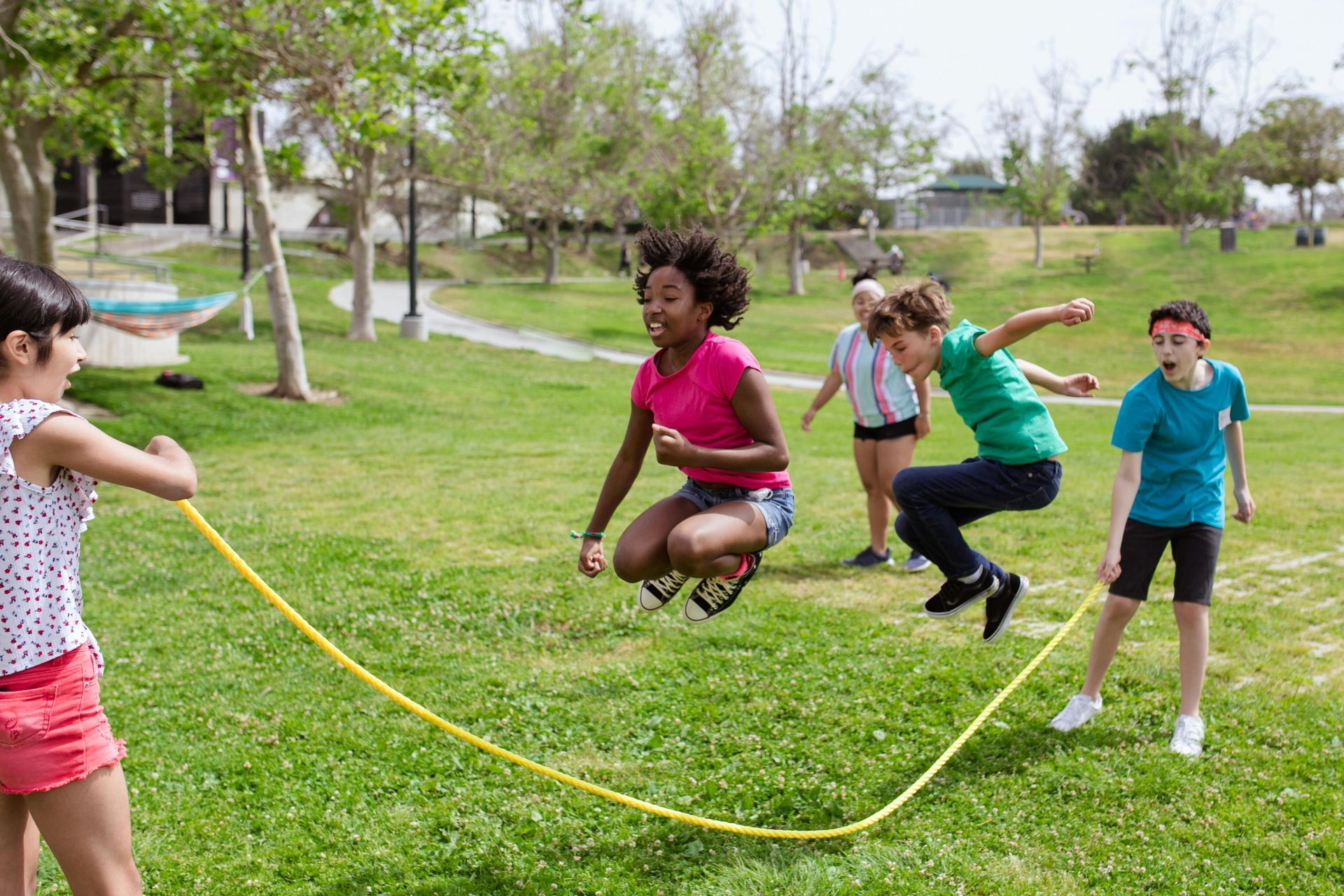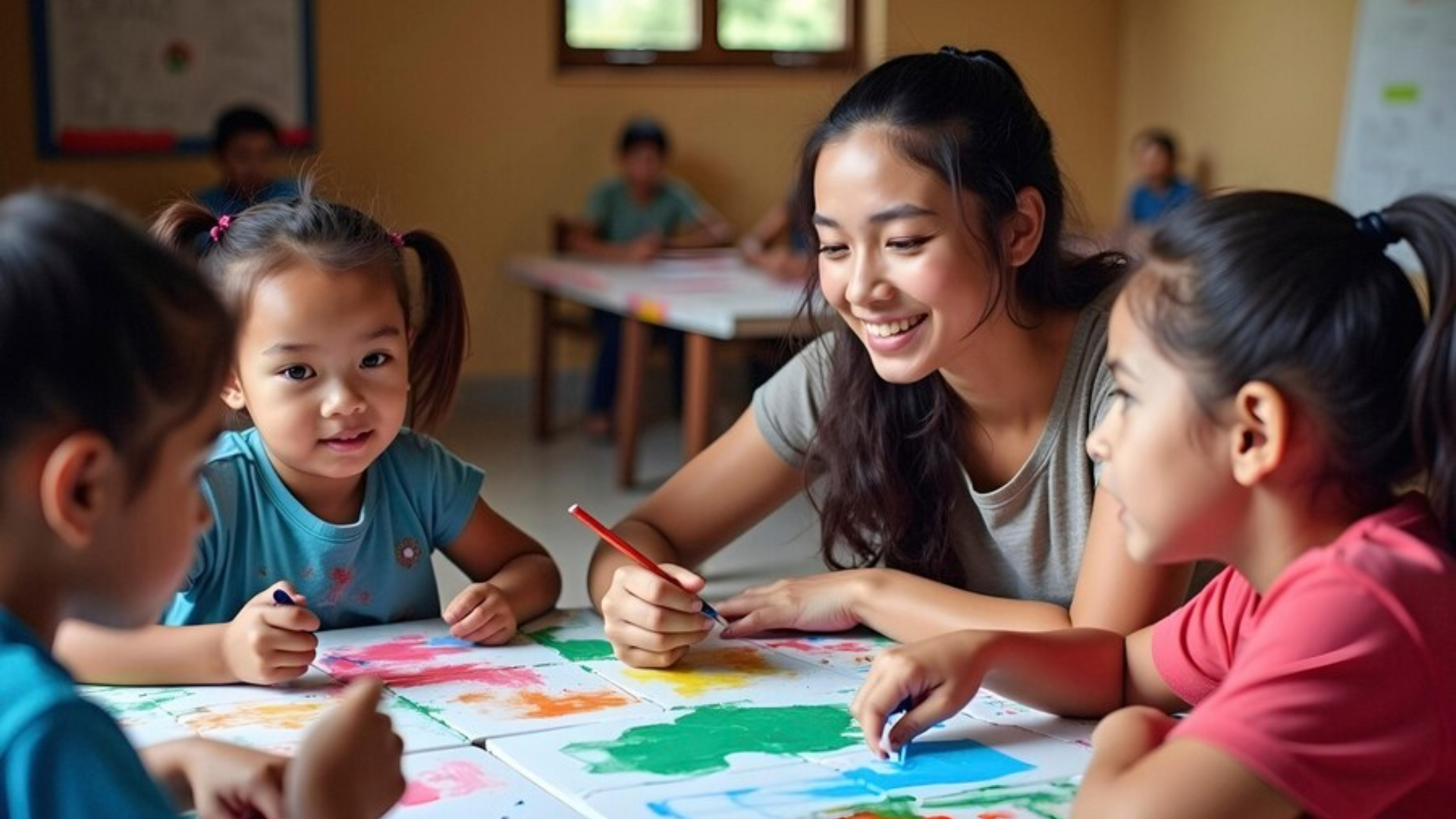The Importance of Outdoor Play: How Nature Supports Child Development

As parents and educators, one of the most valuable things we can offer children is the opportunity to play outside. In our increasingly screen-centered world, it's easy to forget the profound impact that outdoor play has on a child’s development. From physical health to cognitive growth, outdoor play is not just a fun activity—it’s essential for shaping well-rounded, happy, and healthy children.
At Storybook School Orlando, we believe that every child should have the chance to explore and interact with nature as part of their educational journey. The natural world offers rich opportunities for hands-on learning and development, providing children with the tools they need to thrive. In this blog post, we’ll explore the many ways that outdoor play supports child development and why it should be an integral part of any preschool experience.
1. Enhancing Physical Development
One of the most significant benefits of outdoor play is its contribution to physical development. Children need space to move, run, climb, and explore to build strength, coordination, and motor skills. Outdoor activities such as running, jumping, and climbing on playground structures help children develop their gross motor skills—skills that are critical for basic movement and coordination.
For instance, activities like playing tag, jumping rope, or throwing a ball not only improve a child’s balance and coordination but also enhance their muscle strength. These physical activities also encourage children to engage in exercise, which helps them develop healthy habits from a young age and supports their overall physical health.
In addition to promoting large muscle groups, outdoor play also nurtures fine motor skills. Digging in the dirt, picking up small objects, or engaging in activities like drawing with sidewalk chalk all help preschoolers develop hand-eye coordination, dexterity, and the ability to manipulate small objects—skills that will serve them well in tasks like writing, drawing, and even self-care tasks like buttoning a shirt.
2. Cognitive Development and Problem-Solving
Outdoor play is a powerful tool for stimulating cognitive development. When children play outside, they are constantly exposed to new stimuli—be it a pile of leaves to jump in, a muddy puddle to splash in, or a new animal to observe. This variety of experiences sparks curiosity and encourages critical thinking.
For example, while playing in a sandbox or garden, children can experiment with concepts like volume, texture, and measurement. The process of figuring out how much water to add to a pile of sand or determining how deep a hole should be helps develop problem-solving skills and an understanding of cause and effect.
Additionally, outdoor play often involves navigating different terrains and environments, which enhances spatial awareness. Climbing trees or balancing on a log requires children to assess distances, judge angles, and understand balance and weight distribution, all of which promote cognitive skills related to geometry and physics.
Nature also encourages children to engage in imaginative play. Whether they’re pretending to be pirates on a ship or explorers in the jungle, outdoor environments provide the perfect backdrop for creative thinking and role-playing. These imaginative activities foster cognitive flexibility, social skills, and a child’s ability to think outside the box.
3. Social-Emotional Development
Outdoor play fosters important social-emotional development. When children engage in outdoor activities with their peers, they are learning how to share, take turns, and cooperate. For example, when playing a group game or sharing a swing, children learn the importance of communication and working together to achieve a common goal.
Moreover, spending time outdoors offers children opportunities to practice empathy and emotional regulation. If one child falls while running, their friends may offer comfort or help them up. These real-world interactions help children learn to navigate social dynamics, develop emotional intelligence, and build relationships with others.
Outdoor play also provides an outlet for children to manage their emotions. Active play in nature helps release pent-up energy, reduce stress, and calm anxiety. For many children, time spent outdoors can help them feel more grounded and at ease, allowing for improved emotional well-being.
Importantly, nature gives children the freedom to engage in unstructured play, which promotes independence and self-regulation. Without the rigid structure of indoor activities or classroom settings, children are free to explore the outdoors at their own pace, allowing them to learn how to make decisions, deal with setbacks, and discover their own interests.
4. Fostering a Connection to the Environment
Spending time in nature nurtures a child’s connection to the environment and instills an appreciation for the world around them. Whether it’s observing the changing colors of leaves in the fall, watching insects crawl on the ground, or exploring the textures of different plants, nature provides endless opportunities for children to learn about ecosystems, plants, and animals in an immersive and meaningful way.
Through outdoor play, children also learn about sustainability and environmental stewardship. Simple activities like picking up litter or planting a garden allow children to engage in activities that are not only fun but also educational. These experiences help them understand the importance of caring for the planet and foster a sense of responsibility toward the environment.
As children develop a strong connection to nature, they become more likely to respect the environment and take steps toward living sustainably in the future. Early exposure to the outdoors can even encourage lifelong environmental advocacy and activism.
5. Enhancing Creativity and Imagination
Nature is one of the best environments for fostering creativity and imagination. The outdoors offers a vast, ever-changing landscape that invites children to create, explore, and imagine. Whether they are building forts out of sticks, creating art from found objects, or pretending to be animals in a forest, the possibilities for imaginative play are endless.
Unstructured time in nature allows children to become inventors and innovators, as they use natural materials to build, experiment, and create. This type of creative play fosters innovation and problem-solving skills, both of which are essential for success in school and beyond.
When children are encouraged to use their imaginations in outdoor settings, they also develop a deeper appreciation for their surroundings. Whether they’re making up stories about a tree or pretending a rock is a treasure chest, outdoor play fosters creativity and provides an opportunity for children to connect with the world in new and exciting ways.
6. Supporting Health and Well-Being
The benefits of outdoor play for children go beyond cognitive and emotional development—it’s also essential for their overall health and well-being. Physical activity, exposure to sunlight, and time spent outdoors all contribute to improved health outcomes for children.
Outdoor play helps children maintain a healthy weight, build strong bones and muscles, and develop cardiovascular health. It also helps regulate sleep patterns, as the natural light exposure during the day helps set a healthy circadian rhythm, leading to better rest at night.
Additionally, spending time in nature has been shown to reduce the symptoms of attention deficit disorders (ADHD) and improve concentration and focus. Studies have demonstrated that children who regularly engage in outdoor play have better academic performance and more positive social interactions.
The benefits of outdoor play are just one aspect of your child’s overall educational experience. As discussed in our post
7 Advantages of Early Childcare Enrollment, enrolling your child in quality early childcare programs not only supports academic learning but also promotes healthy development, including physical activity and social-emotional growth. Furthermore, our blog post
Is Daycare All Year Round? Here’s the Truth
explores how year-round care can provide consistent opportunities for outdoor play, keeping your child engaged and active throughout the entire year.
Conclusion
Outdoor play is more than just a way for children to have fun—it is a fundamental part of their development. From enhancing physical health to supporting cognitive growth, social-emotional learning, and creativity, nature provides the perfect environment for children to thrive. As parents and educators, it’s crucial that we encourage and facilitate outdoor play, ensuring that children have the space, time, and resources to explore, learn, and grow.
At Storybook School Orlando, we recognize the importance of outdoor play in fostering a child’s development. Whether it’s through structured outdoor activities or free play in natural settings, we are committed to providing our students with opportunities to connect with nature and reap its many benefits.
By prioritizing outdoor play, we set the stage for children to develop into confident, healthy, and creative individuals who are ready to take on the world.













